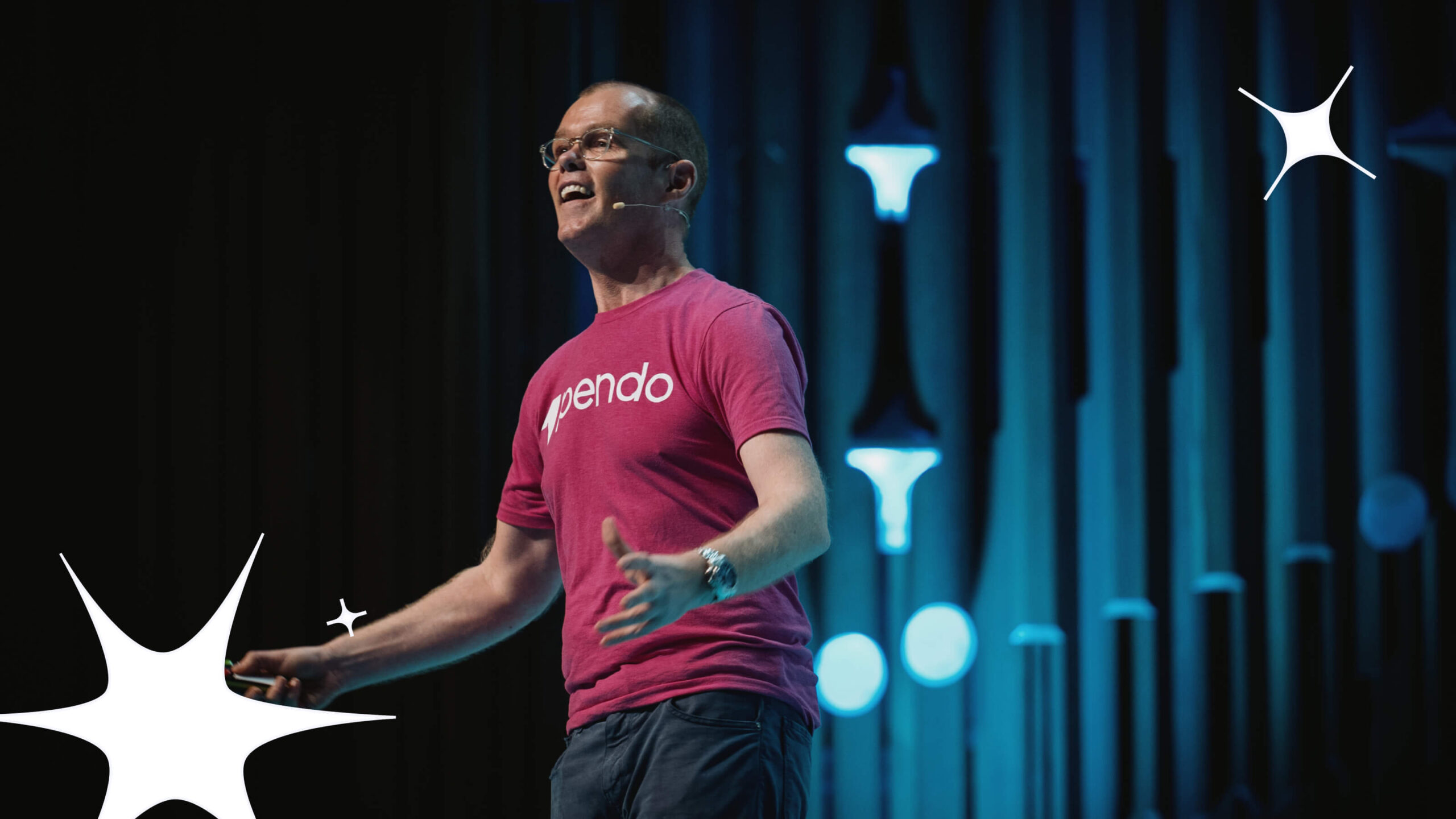As the workplace has shifted digital, Harvard Business School professor Tsedal Neeley has noticed a pattern: For digital transformation to succeed, a company’s people have to come along for the ride. Tech alone won’t guarantee success. You need a mindset shift. “We started to see that it was really important for people to begin to change their mindsets, tool sets, and skill sets in order to participate in a digital environment,” she said.
Neeley spoke about the importance of developing a digital mindset as part of Pendo’s Guide: The Digital Adoption Summit. In looking at what it takes for companies to succeed in this new era, Neeley highlighted three key ways in which employees and managers need to do things differently.
The “3 Cs” of a truly digital mindset
Collaboration: As a hybrid work model increasingly becomes the norm, Neeley argued businesses should think of it as “digital enabled work.” As she explained, “We might all be colocated some days. Other days we might have some people in the room with us, some people not in the room with us, and we have enabling technologies or artifacts in order for us to do work together.” Such enabling technologies include video conferencing programs and smart boards which store and capture data in a way that traditional whiteboards cannot.
Neeley also stressed that businesses should think about the office itself as a tool for driving collaboration and serving key work goals. “When you think about the office as a tool rather than a destination, then you say: What are the activities that we really would do well if people were present?” A product launch lead up in which people have to be together working intensely may be one such occasion for gathering together in person.
But whatever the specific case, managers and employees need to come to these decisions together. Imposing top-down mandates about when to come in will lead to failure, Neeley warned. “What’s not working—and you see this in the news a lot—is when you dictate to people, ‘I want you in on these very specific days adjacent to weekends so that I can see you and make sure you’re working.’ That hasn’t worked. People are pushing back.”
Computation: In order to cultivate a digital mindset, employees and managers also need to develop a basic level of technical understanding, for example of statistics. “Statistics are incredibly important in order to understand how to treat data, how to think about data, how to ask the right questions, how to think about data work and data privacy,” Neeley explained.
She also argued it’s important to have a basic knowledge of how programming languages operate so as to be more aware of potential biases that can arise from technology. “You need to understand how machines learn,” Neeley said, because it will help companies solve a potentially serious problem. “Can people within organizations have the ability to de-bias or to scrutinize their technologies, to critique their technologies objectively enough to ensure that there are no biases or ethical issues that arise?”
Change: At a time when technological developments are moving so fast, Neeley also counseled companies to think about change in the right way. Gone are the days where you can assume that change happens in a linear way or constant rate. “In this digital era, what we’re seeing are exponential shifts and changes. And so we have to adopt experimentation as an important imperative.”
In other words, with things changing so fast, businesses can’t be afraid to take risks, test hypotheses, and iterate on their approach to building a better workplace. Leaning into the uncertainty will actually drive better business results. According to Neeley, “Research shows that organizations that can build a healthy culture of digital experimentation grow at least eight times faster than global GDP.”
Embrace the future of work
Guiding teams through change isn’t always easy, but for businesses to succeed, they need to cultivate the right mental and behavioral shifts among their teams. “People’s behaviors have to fundamentally change and they have to adopt new mindsets” to thrive in today’s digital workplace, Neeley said. “If we change how we think, we change how we do things, and that’s the philosophy behind this work.”
To learn more about how you can help your company cultivate a digital mindset, check out Pendo’s e-book on the analytics-led path to digital adoption today.


